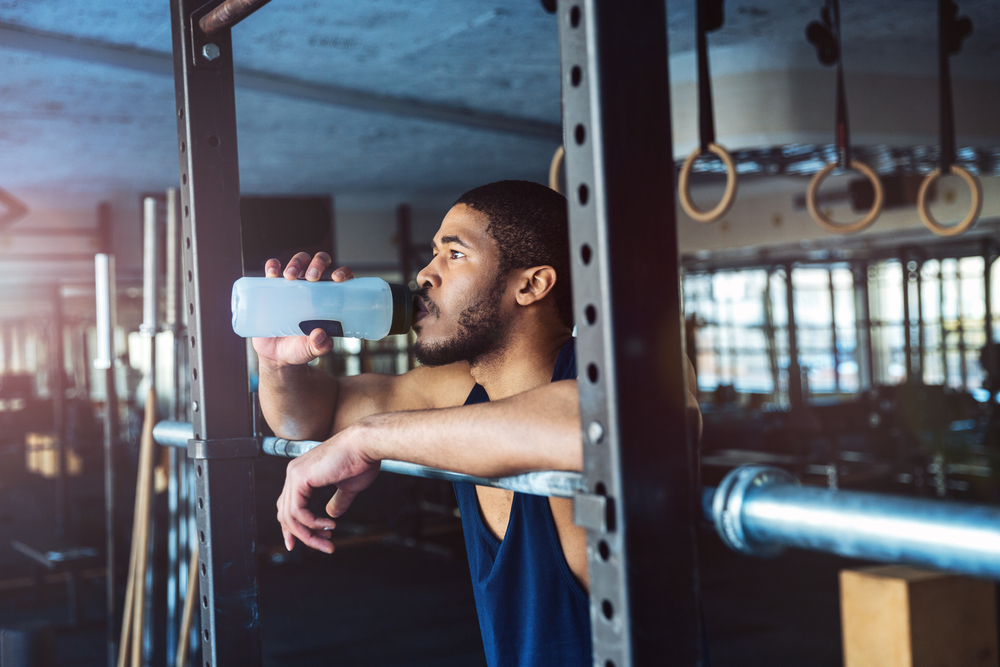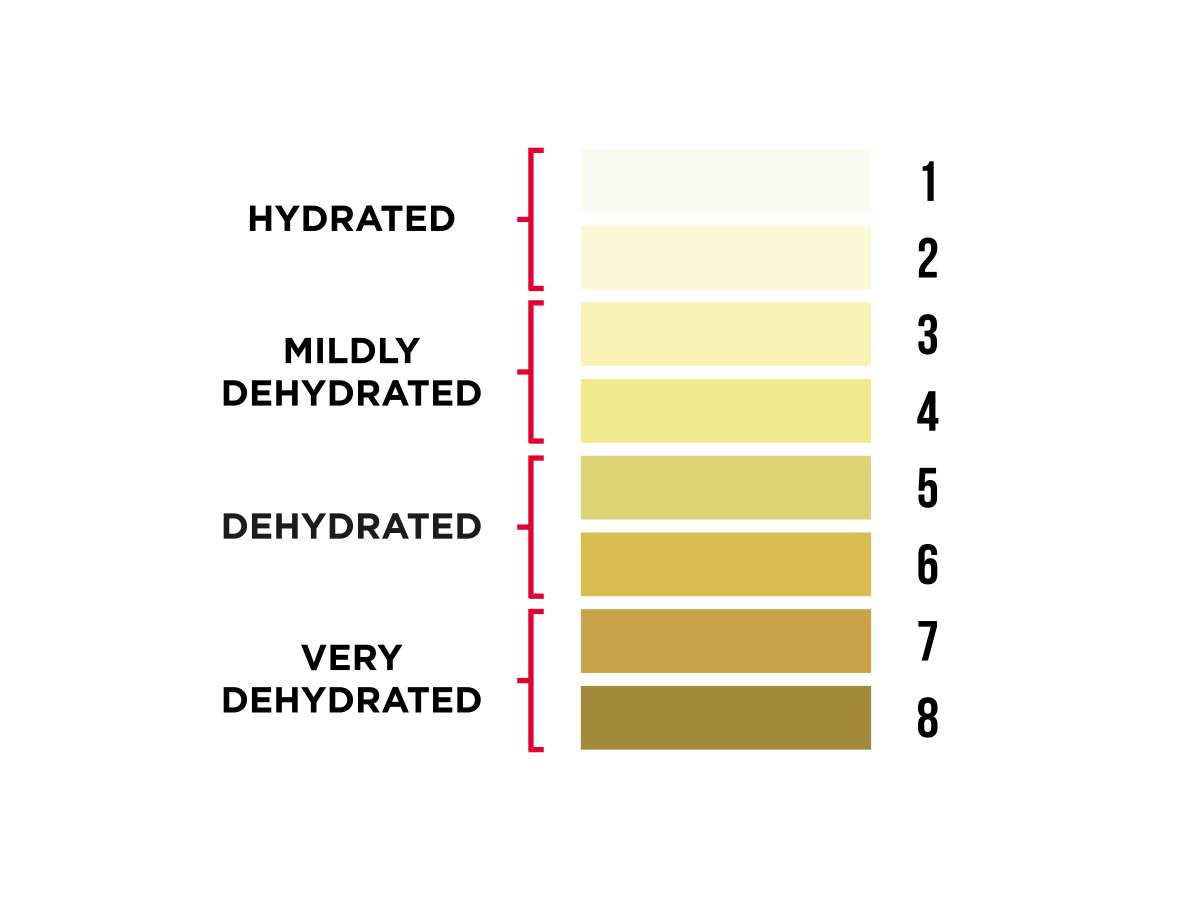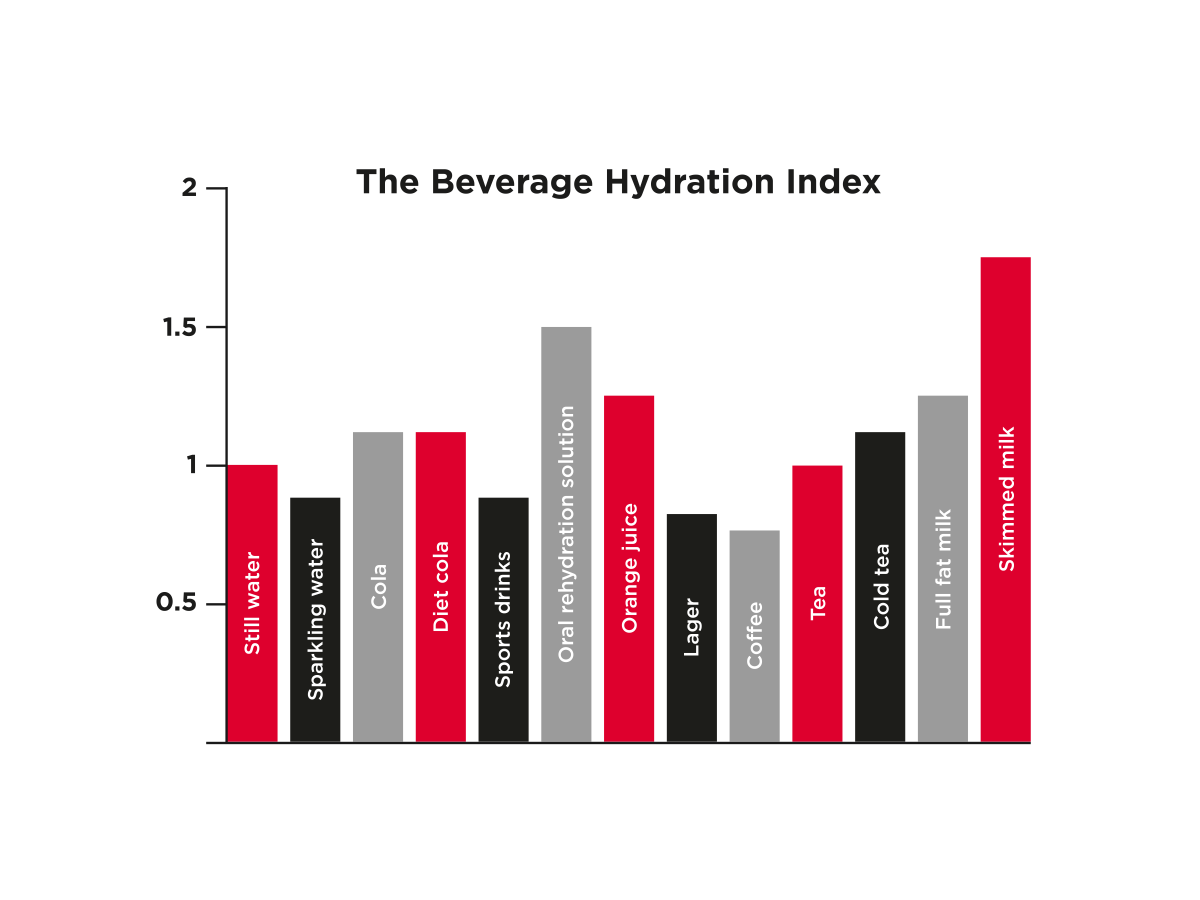Dehydration and Water: 4 Facts That Will Improve Your Health
Staying hydrated and drinking water is essential for weight loss, digestion and maximizing your strength, power and endurance at the gym.
There are many myths surrounding the importance of drinking water and how to prevent dehydration.
How much fluid should you drink per day? Why is fluid important to your health? What are the signs of dehydration? Can you drink too much water?
Let’s address four common myths about hydration. We will also tell you everything you need to understand about water.
Myth 1: Everyone should consume 8 ounces of water per day
The current daily recommendation does not align with the blanket statement of 8oz fluids (roughly 2.3L). It’s a start, but the official guidelines for men are 3.7 litres and for women 2.7 litres.
These recommendations are not only benchmarks, but they also vary depending on the individual’s height, weight and body composition.
A man who is smaller and has less muscle tissue will need less water than someone 6ft tall and weighing 100kg.
To calculate your water intake, aim to drink one litre of water for every 25kg body weight.
Myth 2: You should only drink when you are thirsty
The majority of people do not know that thirst is an inaccurate indicator of hydration, as it is a delayed reaction. A person can lose up to 1.5 litres before they feel thirsty.
The urinary color chart is a great way to gauge your hydration level. If your urine colour is between the first three colors on the chart you are hydrated. Anything higher than the fifth color indicates that you are dehydrated.
Myth 3: Only water can keep you hydrated
Water is not the only thing that counts when it comes to hydration. Water is a major component of most fruits and vegetables, such as watermelon or spinach.
The beverage hydration indicator shows how different fluids hydrate us based on our ability to retain them. The higher the score of the hydration indicator, the better the fluid retention in power drinks. We need less fluid overall to hydrate.
Drinking a beverage that contains calories (especially carbohydrates) increases the amount of fluids we retain. This is especially true if it has electrolytes. Fluids and calories together slow down the movement of fluids in the body. This allows them to be retained and absorbed more easily.
Myth #4: You can confuse hunger with thirst
It is not true that hunger and thirst are the same thing. They are actually two completely different emotions. Drinking more water can make you feel fuller, as it expands the stomach lining. Drinking water along with your food can cause the stomach lining to expand, giving you the feeling of being fuller longer.
Stomach-wall-stretching is one of the mechanisms the body has to signal to the brain what is going on in the gut. It will temporarily reduce your feelings of hunger. This has nothing to with feeling thirsty, and mistaking it for hunger.
Take Home
The average person is told to drink 8oz. of water per day. While this is a good starting point, fluid intake needs vary by person. While water is the best way to stay hydrated, other beverages and foods may also help.


